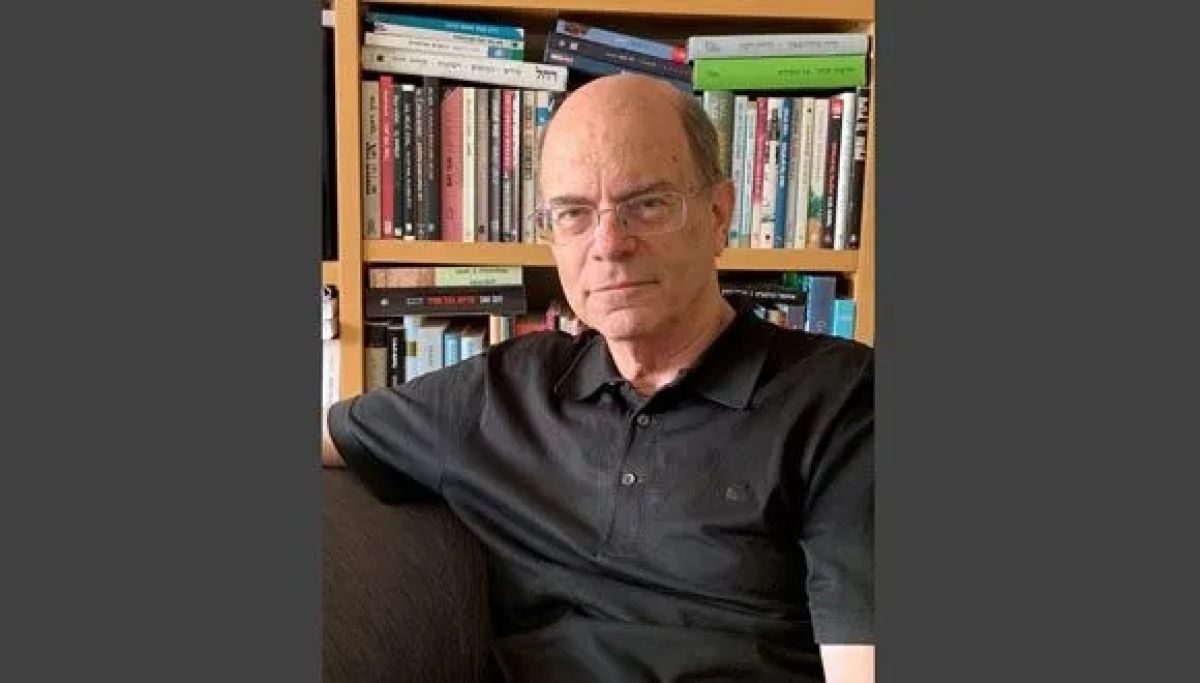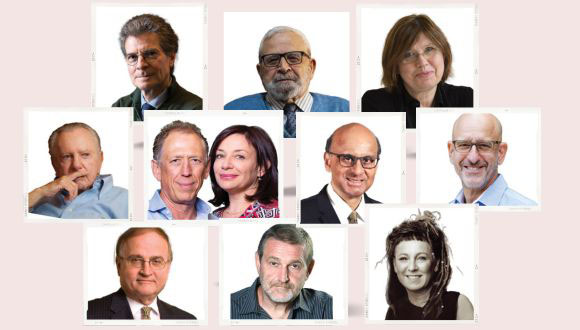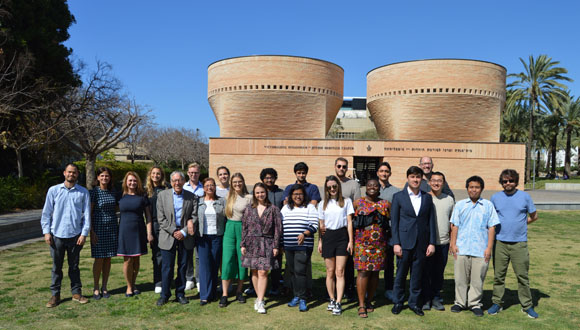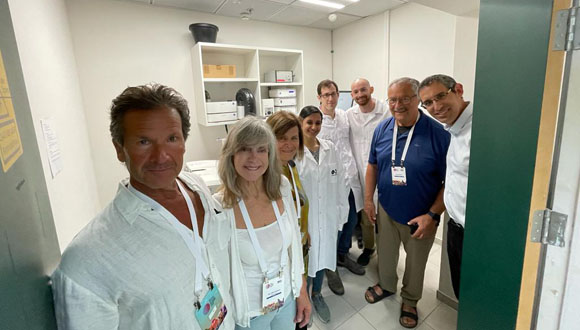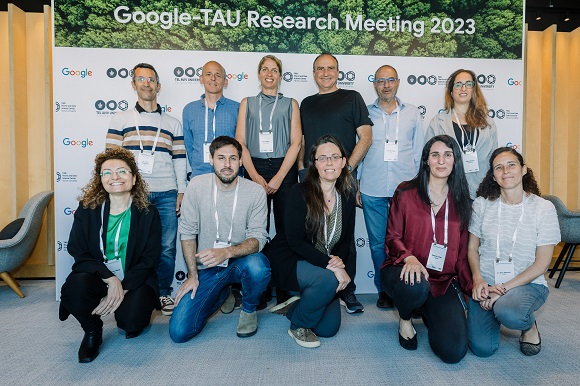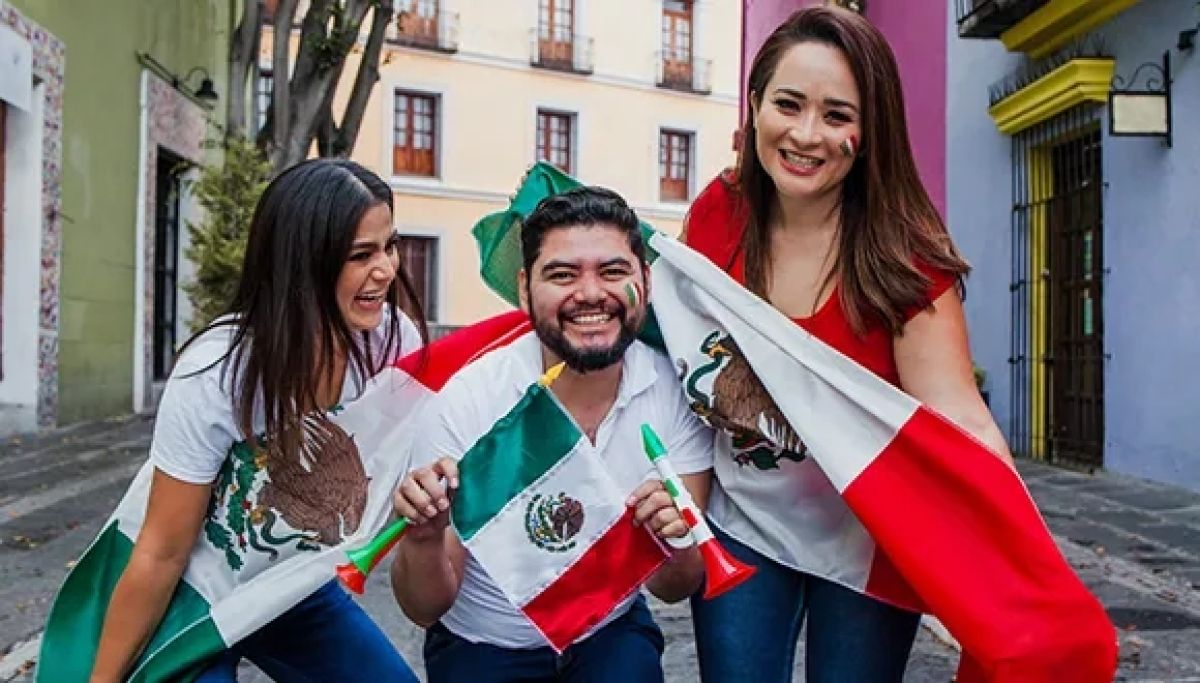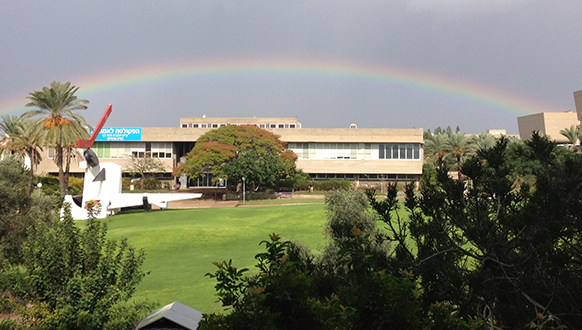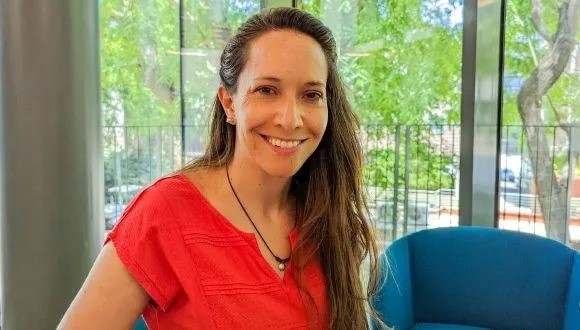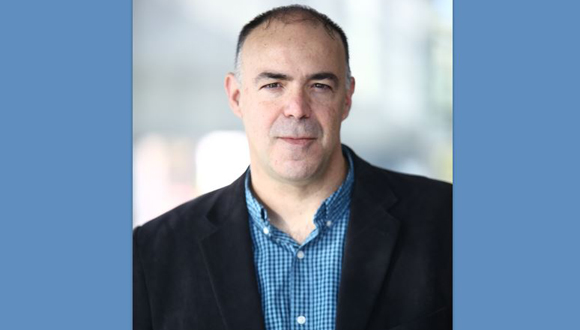A new study led by the paleogenetic laboratory of the Steinhardt Museum of Natural History at Tel Aviv University and the University of Haifa analyzed DNA from ancient local winegrape seeds discovered at archaeological excavations in the Negev. One seed was found to be almost identical to the Syriki variety used today to make high-quality red wine in Greece and Lebanon, while another seed is a relative of the white variety called Be’er, still growing in deserted vineyards in the dunes of Palmachim.
Exported to Europe
The genetic study was led by Dr. Pnina Cohen and Dr. Meirav Meiri of the paleogenetic lab at the Steinhardt Museum of Natural History at Tel Aviv University. The seeds were found at archaeological excavations led by Prof. Guy Bar-Oz from the School of Archaeology and Maritime Cultures at the University of Haifa, in collaboration with researchers from the Israel Antiquities Authority. Other participants included researchers from the University of Haifa, the Weizmann Institute, Bar-Ilan University, and research institutions in France, Denmark, and the UK. The paper was published in the leading scientific journal PNAS.
“The findings include large winepresses, jugs in which the exclusive wine, exported to Europe, was stored, and grape seeds preserved for more than a thousand years. This industry gradually declined following the Muslim conquest in the 7th century, since Islam forbids the consumption of wine.” – Prof. Guy Bar-Oz
“Archaeological excavations conducted in the Negev [in Israel] in recent years have revealed a flourishing wine industry from the Byzantine and early Arab periods (around the fourth to ninth centuries A.D.), especially at the sites of Shivta, Haluza, Avdat, and Nizana, which were large, thriving cities at the time,” says Prof. Guy Bar-Oz from the University of Haifa.
“The findings include large winepresses, jugs in which the exclusive wine, exported to Europe, was stored, and grape seeds preserved for more than a thousand years. This industry gradually declined following the Muslim conquest in the 7th century, since Islam forbids the consumption of wine.”
“The cultivation of winegrapes in the Negev was renewed only in modern times, in the state of Israel, mostly since the 1980s. This industry, however, relies mainly on winegrape varieties imported from Europe.”
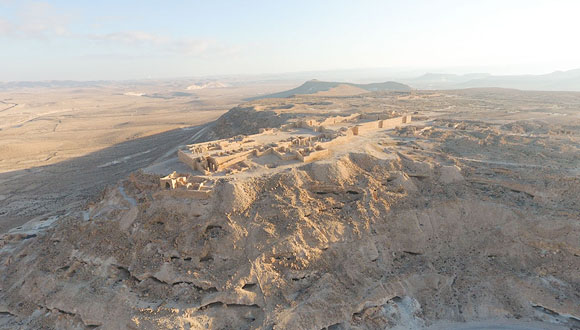
Avdat Excavation (photo: Tali. Erickson-Gini and Scott Bucking)
Extracting DNA
One especially interesting finding was a large hoard of grape seeds, discovered on the floor of a sealed room at Avdat. The researchers explain that these seeds have been relatively well preserved thanks to protection from climatic phenomena such as extreme temperatures, flooding, or dehydration. To learn more about the seeds, in the hope of discovering which varieties they might belong to, the researchers prepared to extract their DNA in the paleogenetic lab.
The science of paleogenomic uses a range of advanced technologies to analyze ancient genomes, primarily from archaeological findings,” explains Dr. Meiri from the Steinhardt Museum of Natural History at Tel Aviv University. “Since the DNA molecule is very sensitive and disintegrates over time, especially under high temperatures, we usually get only small pieces of DNA, often in a poor state of preservation. To protect them we work under special conditions: the paleogenetic lab is an isolated clean laboratory, with positive air pressure that keeps contaminants out, and we enter it in sterilized ‘spacesuits’ familiar to everyone from the COVID pandemic.”
To begin with, the researchers looked for any organic matter remaining in the seeds. For this purpose, they used FTIR (Fourier-transform infrared spectroscopy) – a chemical technique applying infrared radiation to produce a light spectrum that identifies the sample’s content. Finding remnants of organic matter in 16 seeds, the researchers went on to extract DNA from these samples.
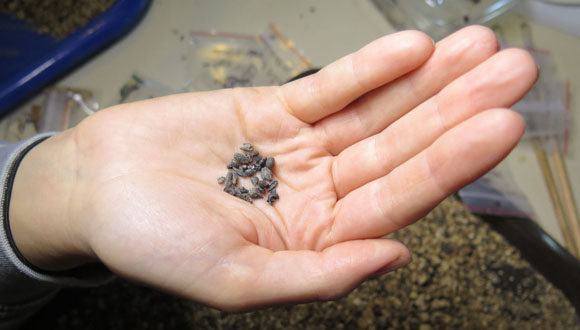
Ancient local winegrape seeds from Shivta, Israel (photo: Prof. Guy Bar-Oz, The University of Haifa)
Ancient Grapes – Still Around Today
The extracted DNA was sequenced, with an emphasis on about 10,000 genomic sites where variety-specific features are usually found, and the results were compared to databases of modern grapevines from around the world: In 11 samples, the quality of genetic material was too poor to allow any definite conclusions. Three of the remaining samples were identified as generally belonging to local varieties. Finally, the two samples of the highest quality, both from around 900 A.D., were identified as belonging to specific local varieties that still exist today.
The discovery was quite extraordinary:
- One seed was found to belong to Syriki, a known Middle Eastern variety with a long history of cultivation in the Southern Levant and Crete, still used today to make high-quality red wine in Greece (where it is known to have arrived from the east) and in Lebanon. Since winegrapes are usually named after their place of origin, it is quite possible that the name Syriki is derived from Nahal Sorek, an important stream in the Judean Hills. Moreover, this variety may even appear in the Bible – in Jacob’s blessing to his son Judah: “He will tether his donkey to a vine, his colt to the choicest branch (soreka); he will wash his garments in wine, his robes in the blood of grapes (Genesis 49, 11); and perhaps also suggested in the giant cluster of grapes brought back by the men sent by Moses to explore the land: “When they reached the Valley of Eshkol (identified by some as Nahal Sorek), they cut off a branch bearing a single cluster of grapes. Two of them carried it on a pole between them” (Numbers 13, 23).
- The other high-quality seed was identified as related to Be’er, a white winegrape variety still growing in the sands of Palmachim on Israel’s seashore, in remnants of vineyards probably abandoned in the mid- 20th century. For the first time ever, the researchers were able to use the genome of a grape seed to determine the color of the fruit, discovering that it was in fact a white grape – the oldest botanical specimen of a white variety ever identified. Be’er, a unique local variety, endemic to the land of Israel, is used today by the Barkan winery to make a special white wine of its own.
“The wonderful thing about paleogenetics is that sometimes, tiny items can tell a big story. This is exactly what happened in this study. With just a bit of DNA extracted from two grape seeds we were able to trace continuity in the local wine industry – from the Byzantine period, more than a thousand years ago, to the present day.” – Dr. Meirav Meiri
Tiny Items Tell a Big Story
“The wonderful thing about paleogenetics is that sometimes, tiny items can tell a big story,” says Dr. Meiri. “This is exactly what happened in this study. With just a bit of DNA extracted from two grape seeds we were able to trace continuity in the local wine industry – from the Byzantine period, more than a thousand years ago, to the present day.”
“We believe that our findings are also significant for Israel’s modern wine industry, which has been growing and thriving in recent decades. Today, most varieties grown here have been imported from Europe, so that the local conditions are not optimal for them. Local varieties can be more suitable for the local climate and soil, especially in the desert region of the Negev. Our study opens new paths for restoring and improving ancient local varieties, to create winegrapes that are more suitable for challenging climatic conditions such as high temperatures and little rainfall.”
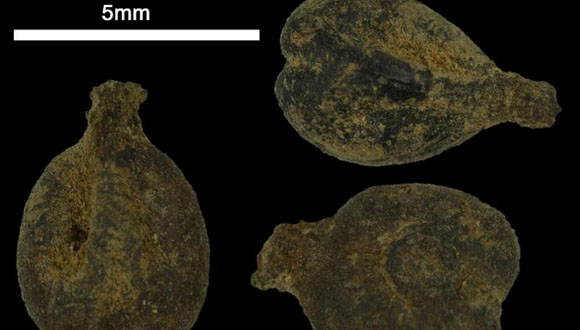
Tiny items can tell a big story. Ancient winegrape seeds under a Microscope from Avdat (photo: Prof. Guy Bar-Oz, The University of Haifa)

